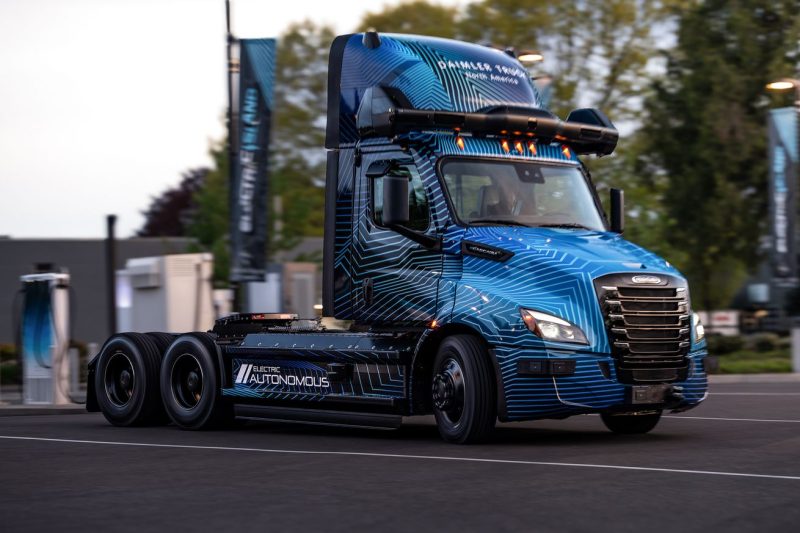Daimler’s Driverless Semi Trucks Will Hit the Road in 2027
In the rapidly evolving landscape of transportation technology, Daimler has announced its ambitious plan to introduce driverless semi-trucks by the year 2027. This groundbreaking initiative seeks to revolutionize the logistics industry by leveraging cutting-edge autonomous driving technology to enhance efficiency, safety, and sustainability in long-haul trucking.
With advancements in artificial intelligence, sensor technology, and connectivity, Daimler aims to redefine the traditional concept of trucking with its driverless semi-trucks. These vehicles are equipped with state-of-the-art sensors and cameras that enable them to perceive and navigate through complex road environments, making split-second decisions to ensure safe and efficient transportation of goods.
The implementation of driverless semi-trucks is poised to bring about significant benefits to the transportation industry. One of the key advantages is increased safety on the roads. By removing human error from the equation, these autonomous trucks have the potential to significantly reduce the number of accidents caused by driver fatigue, distraction, or error, ultimately saving lives and reducing the economic impact of road incidents.
Moreover, the deployment of driverless semi-trucks is expected to have a positive impact on environmental sustainability. By optimizing routes and driving behaviors, these autonomous vehicles can help minimize fuel consumption and carbon emissions, contributing to efforts to combat climate change and promote a greener future for the transportation industry.
In addition to safety and sustainability benefits, the introduction of driverless semi-trucks is set to revolutionize the efficiency and productivity of long-haul trucking operations. With the ability to operate non-stop and cover long distances without the need for breaks, these autonomous trucks can significantly reduce delivery times and enhance the overall supply chain efficiency.
From a logistical perspective, the adoption of driverless semi-trucks presents a range of opportunities for businesses to streamline their operations and potentially reduce costs. By leveraging the capabilities of autonomous vehicles, companies can optimize their logistics networks, improve inventory management, and enhance overall supply chain visibility, ultimately driving greater operational efficiency and competitiveness in the market.
While the introduction of driverless semi-trucks represents a significant technological leap forward in the transportation industry, it also raises important considerations regarding regulation, liability, and public acceptance. As these autonomous vehicles take to the roads, policymakers will need to develop clear regulatory frameworks to ensure the safe integration of driverless trucks into existing transportation systems and address potential legal and ethical issues associated with autonomous driving technology.
Furthermore, widespread public acceptance of driverless semi-trucks will be crucial for the success of this initiative. Daimler and other industry stakeholders must engage with the public to build trust in the safety and reliability of autonomous vehicles, address concerns about job displacement, and ensure a smooth transition to a future where driverless trucks are a common sight on our roads.
In conclusion, Daimler’s plan to introduce driverless semi-trucks in 2027 represents a bold step towards transforming the future of long-haul trucking. With the promise of increased safety, sustainability, and efficiency, these autonomous vehicles have the potential to revolutionize the transportation industry and usher in a new era of innovation and progress. As we look ahead to the widespread adoption of driverless semi-trucks, it is essential for stakeholders to collaborate, innovate, and address the challenges and opportunities that come with this transformative technology.
